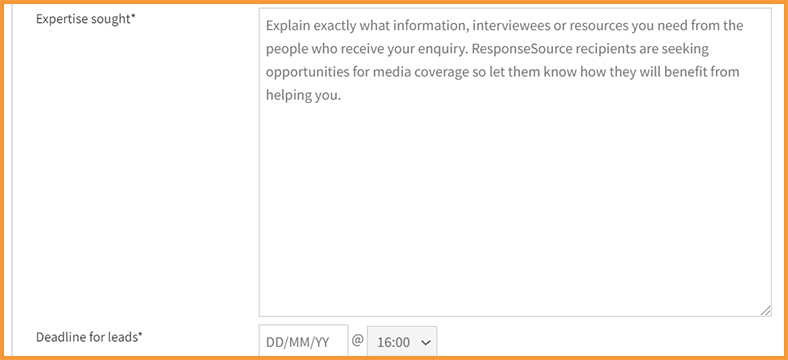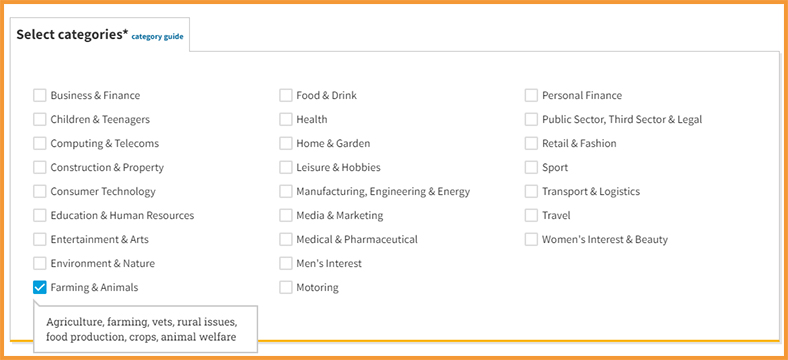The benefits of using the Journalist Enquiry Service over #JournoRequest

Familiar with #JournoRequest for sourcing expert comment and case studies on X? It can be a useful way to get information for your article but the ResponseSource Journalist Enquiry Service has been running for over two decades and used by hundreds of journalists to find experts, case studies, review products and much more.
Here are a selection of reasons why using the Journalist Enquiry Service (which is free for journalists) is a better way to find what you’re looking for…
Space to provide as much detail as you want
280 characters sounds like a lot to get across everything you want for your #Journorequest. However, if you have a particularly specific request that requires more detail, then those characters will quickly run out.
The Journalist Enquiry Service form has an ‘expertise sought’ section which gives you unlimited space to write out your request and give as much detail as you need. It also means you can be clear on who you want to hear from, and who you don’t. Plus, it gives you the chance to show similar pieces of work (if it’s part of a series, for example) and give PRs the chance to understand your style, format, and how they can fit both.

Targeting the sectors that matter to you
Twitter is still huge, with a worldwide user base, meaning engagement might not necessarily be with people you want to hear from.
With 25 categories to choose from, the Journalist Enquiry Service means that you can target your specific niche – be that ‘Business & Finance’, or ‘Women’s Interest & Beauty’. If your request is broad then you can tick every category, or if you really just need a medical expert then just select the ‘Medical & Pharmaceutical’ category to get the relevant comment you need.

Setting deadlines and the option of publication dates
Character limitations on X means you may be short of space for including all the relevant info for your request.
That isn’t the case with the Journalist Enquiry Service. It’s a requirement on the form to set a deadline, meaning our PR subscribers know when you need the information by. You can also choose to close a request early, or you can extend the deadline, or you can extend the deadline if you still need one or two more replies – just email help@responsesource.com and the team will sort it. If you know when the piece will be published, then you can also let PRs know this to give them even more detail.
Contact details kept safe and PRs you can trust
We know that many journalists like to keep their contact details private. That makes it difficult to know when to share details with PRs via X. That isn’t a concern on the Enquiry Service as initial contact between yourself and our PR subscribers is through our internal network. Email replies come via responsesource@responsesource.com, and you can keep any personal contact details private until you’re ready to share them.

Another benefit of the Journalist Enquiry Service is that the subscribers receiving your requests are reviewed by our team of experts. Our goal is to make sure all users are actively involved in helping journalists, alongside earning coverage in the media for themselves and their clients.
If you’re in need of information or an expert today then don’t hesitate to send a request on the Journalist Enquiry Service. Fill in the form and get what you need straight to your inbox.
Find out more about the various different ways that you can make use of the service, and get tips on what you should and shouldn’t be doing to get the most out of your request. Any other questions about the service then drop our community manager an email – andrew.strutt@responsesource.com

